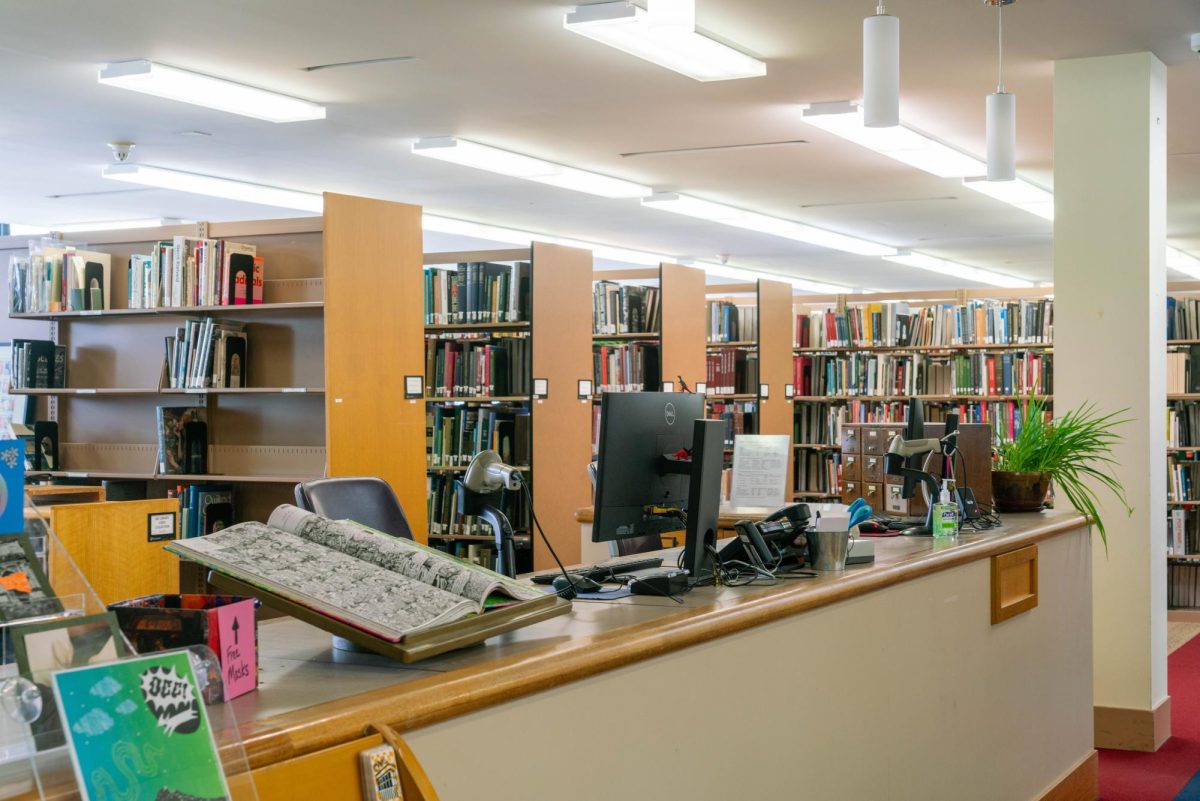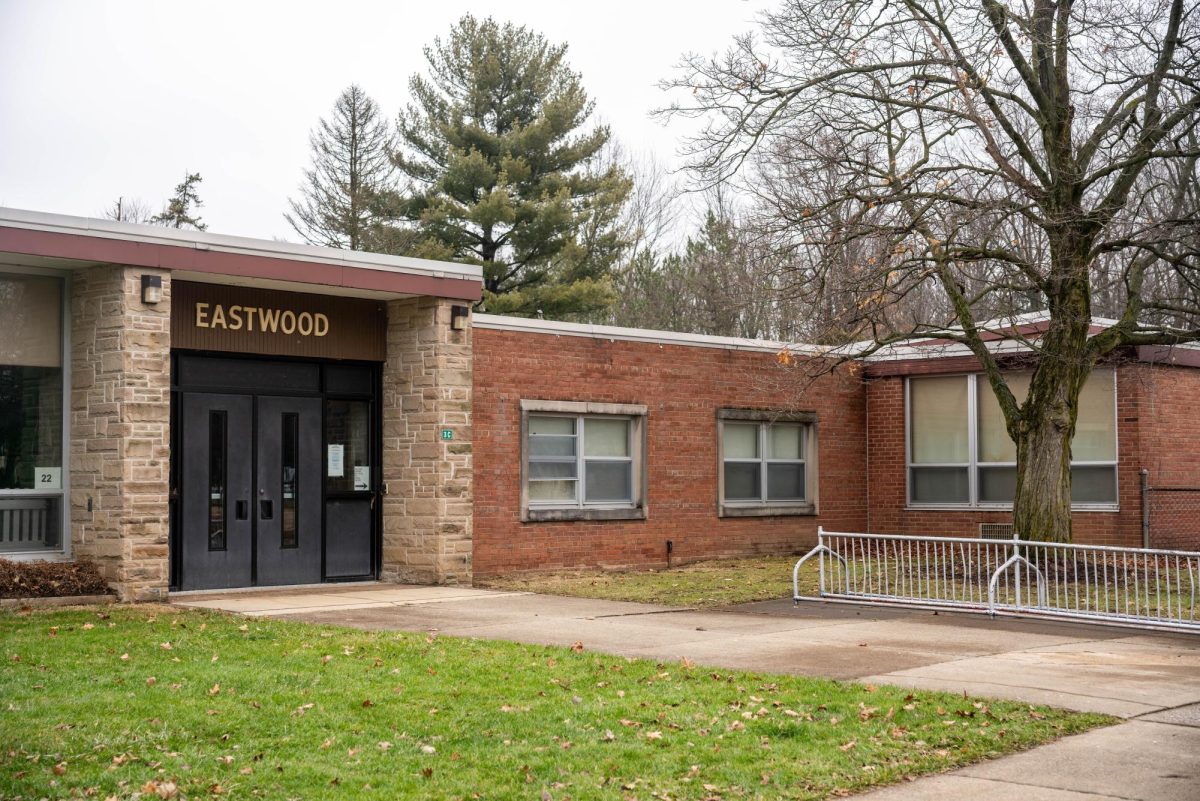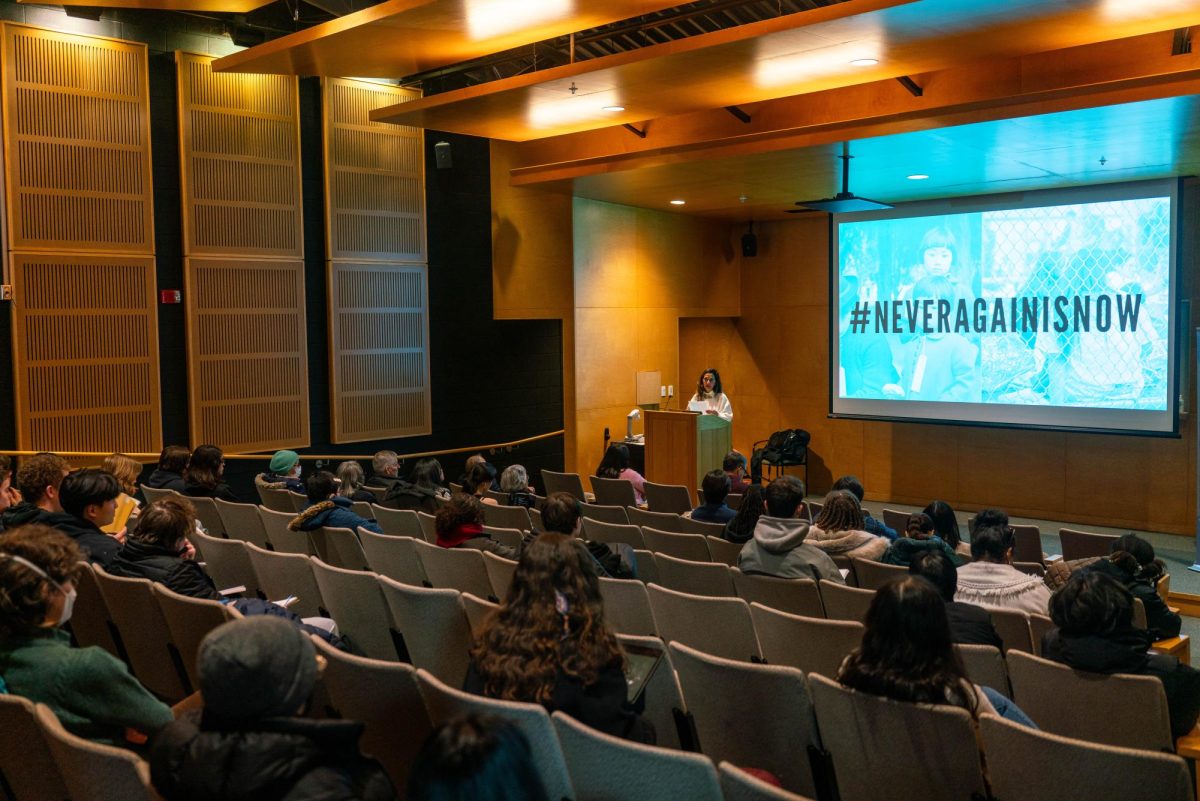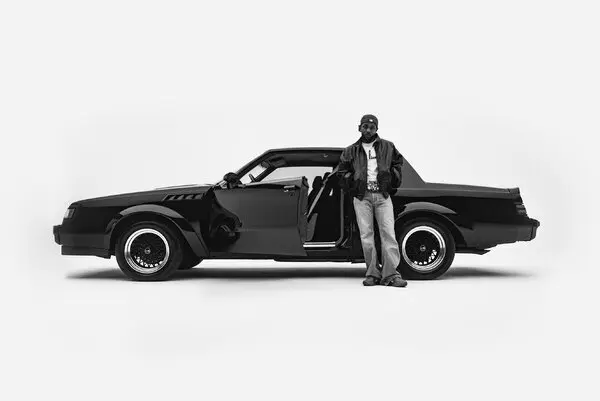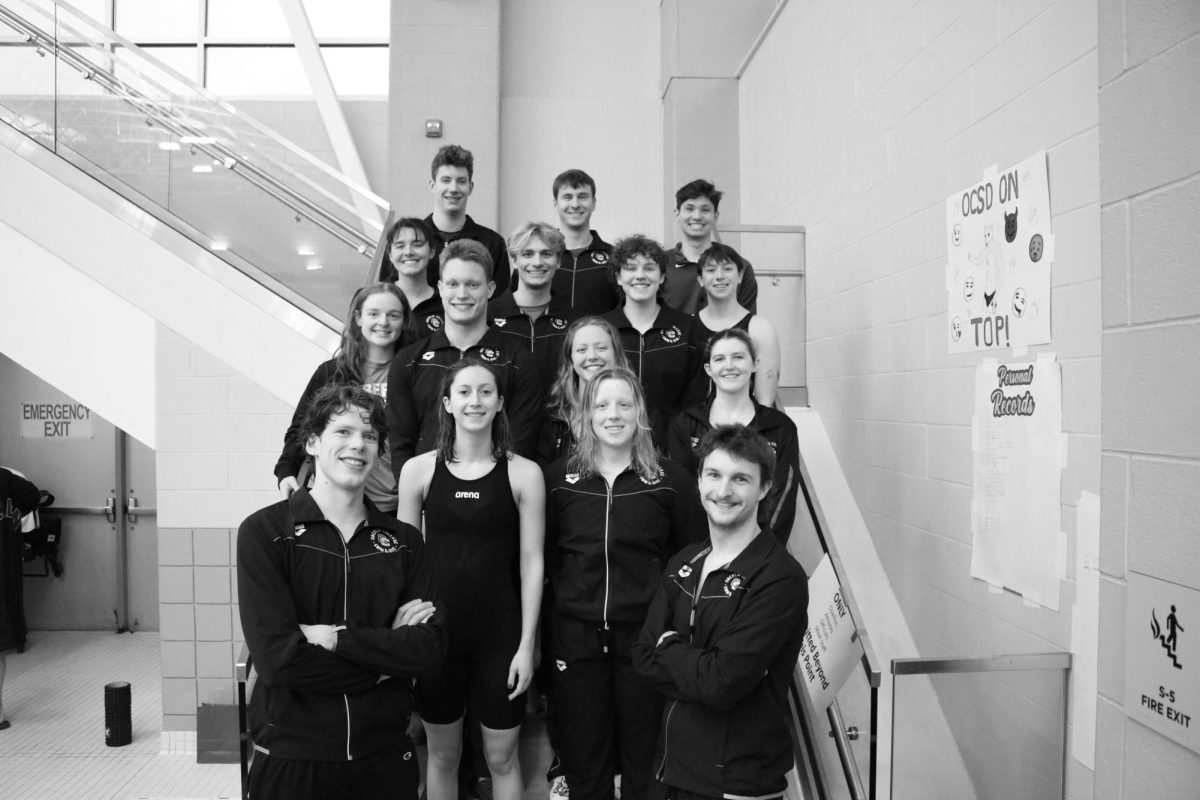Off the Cuff with Eddie Miller
Born and raised in Oberlin, Eddie Miller founded Heritage Lawn Mowing, a unique small business in which he charges people $1 a day (per sheep) to let his four Jacob sheep mow their lawns the old-fashioned way — by munching on the grass. Though Miller was forced to sell his sheep several weeks ago, he remains committed to small agricultural business and creating sustainable living environments. Miller caught up with the Review for a phone interview from Jackson, WY to share his thoughts on permaculture design, the pros of raising animals and why undergraduates should consider small farming as a plausible future career.
November 11, 2011
Did you do any farming-related activities when you were younger or did you not get into it until college?
I worked at George Jones in high school. It was going abroad and seeing a rainforest [in Costa Rica] that made me know I wanted to do agriculture. It’s a way to balance the universe with the human world that we need to get back to.
What was the inspiration for the sheep lawn mowing service in general and why did you decide to start it here?
Well I basically chose sheep because my ex-girlfriend thought that they were cute. We had this plan to go in on it together. Last year after county-fair time it was like, “Well, the onions are harvested, the peppers are going down, the tomatoes are going down — what’s next?” I was able to purchase two sheep and was able to start visiting all of these sheep places and read up on it. It seemed intuitive. I purchased the sheep from John Petersen, who is an Oberlin professor.
The inspiration for the lawn mowing business was the positive reaction of neighbors as I kept the sheep at home. I was worried at first that people would resent the sheep being there. They would often joke that they could leave a little area of their lawn unmowed. So then year two I decided to turn it into a business. I had a lot of friends who told me they had some supplies I could use and family friends who’d be interested in [having the sheep mow their lawns]. Eventually even people I didn’t know started asking around.
I know you’re from Oberlin — did you already know most of your customers? Was there a typical kind of customer?
It was actually very varied. It was really every area of town, every different demographic, age group and income level. I had some houses where I worked in west town, South Main Street, southeast Oberlin, northeast Oberlin. I did a farm, the high school farm, had an offer to do Kendal and did the country houses of some people west and south of town.
How did it work out? Was the business profitable and do you plan to return to restart the project in the spring?
Indeed. I think of the sustainability of raising sheep is that now is the season for grass-fed lands. The vegetables are going down and some people will fill their food needs by hunting, some people will raise animals. … With sheep, the grass that you sow now will pay for the rest of the flock to eat. It’s very natural, in a poetic sense. Small scale, the project didn’t pay the bills. But on a larger scale, maybe. With bigger clients, you could get a working income off it. The sheep have not covered their own expenses, especially gas. You need someone to transport them. I would often walk them from house to house.
Farming is bit of a paradox because it has got a big upfront cost — unless you inherit a farm, you have to deal with the cost of machinery, fencing, land, to name a few. That takes a long time to pay back, especially with one or two dollar increments.
Is that why you ended up selling the sheep?
Well something bad happened the last week I was doing my lawn mowing service. The sheep were kept in a little fenced off area behind a temporary fence and a hard wire one, but the fence had a little gate in the side of it that was somehow left open. The sheep walked out of it. Someone saw the sheep back at a house where they’d been cutting the grass last week and they tied the sheep to a telephone pole and called the police. So this officer comes by and asks, “Did you leave three sheep unattended on the corner of Morgan Street?” And I said, “No, we worked there last week.” He said, “Well they are there now, over by Sycamore Street.” So we went down to collect them and he ended up giving me a ticket for $150 for animals at large. That was about what I made from the whole summer of it. My plan was to invest that money into a little tractor cart that I’d found online for about that much, fill it with hay and then bring the sheep and stop at farmers’ houses to cut their grass on my way out west. The ticket put a damper on that whole idea. I still wish I could show the people out here some of my best-trained sheep.
What are you doing know that you’ve left this particular venture behind?
Well, I haven’t left it behind. I wish I hadn’t sold my sheep. As it is, I had to temporarily, and now I’m here in Jackson, WY, which is home to Yukon National Park, Yellowstone National Park and the world’s largest concentration of elk. I was hiking one day and looked at the hills across the way and saw large tracks of land that were undeveloped [that I thought could be used] for an elk landscaping business. The elk come in here — they migrate randomly — and I thought it would be pretty cool to move them onto different hills and design a permaculture farm with elk and pine trees.
So how long have you been out there now?
I’ve been traveling for about two weeks, and this is my fourth day in Jackson. I’ve gotten a good reception to the elk idea here. It would involve working very closely with the parks system and learning a lot about elk, but I think people are really drawn to the idea of starting a small business. This is really something that I encourage current students to think about when they graduate — starting some kind of small business that meets an appropriate need. It doesn’t have to be sheep, but sheep are an appropriate technology for Oberlin. Here in Jackson where they have a lot of elk, elk might be an appropriate technology. It doesn’t have to be agricultural, but I think that small farming is in the future of more students than they realize. I joked when I was in Oberlin this fall that any student who is still undeclared should consider small farming. You’re meeting a need that everyone has and you can grow whatever you want. One appropriate machine, one tool, one piece of food that you can make and produce a lot of — that’s your niche.
The story was circulated around the Internet very rapidly and by a number of important news services. What do you think it is about self-started businesses that are tied to the land that people find so interesting? Were you surprised by the feedback on the article?
I have been surprised by the reaction. There have been tons of comments and it’s been emailed all around the Internet. It was the number five most emailed article on the day it came out. From the ratings and comments I’ve seen for it on user.com, 90 percent classified it as brilliant and 10 percent as intriguing on a scale from one to five. People said things like, “I’d hire him” and “It’s a great idea” and “He should franchise.” I think that it’s a perfect example of American optimism. It fits in with the whole idea of “I’m going to frontier something, I’m going to settle it, I’m going to start a small business and hope for the best.” Entrepreneurial spirit is what made America great and it still can. We still have the entrepreneurial spirit of our ancestors, we just need to reconnect with the kind of knowledge that they knew. One of the comments said that that was the problem with modern America, that we’ve lost that connection to nature.
So in terms of the intrigue value of it, there’s the small entrepreneur growth model of it, the connection with nature, the fact that it’s sustainable, and also it’s a light. Hearing about someone who is 23 and has a great idea and is doing something about it is a light in a lot of darkness. If you read the New York Times on any given day it’s filled with scandal, news about the economy or problems with international affairs, but this story captivated a sort of idealism. It was a unique picture.
What do you plan to do when you return from Wyoming?
I think that through field of permaculture design I will continue to work with animals. If we can live in an environment where food is readily available — fruits and nuts mainly, but also different breads and cheeses and meats — this is the stuff of life. I hope to be redesigning livable landscapes, livable permacultures, livable systems, maybe in the form of a small business.





